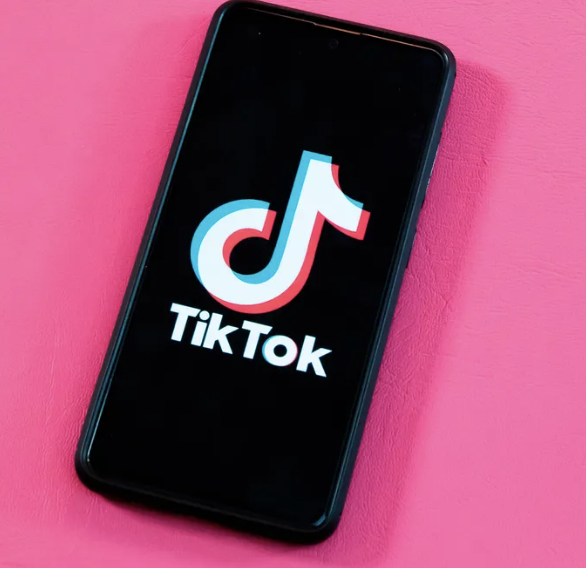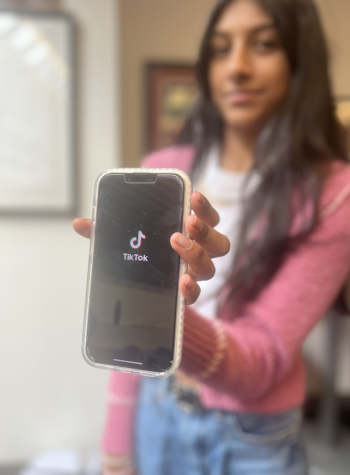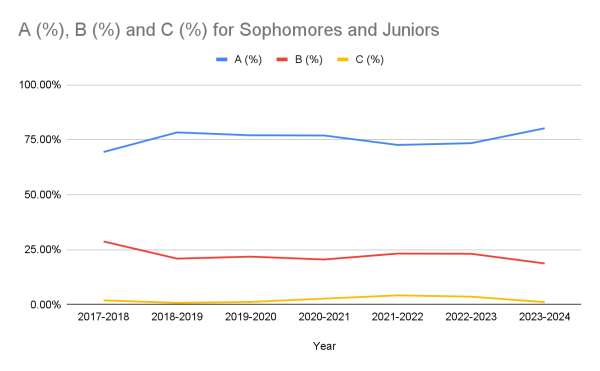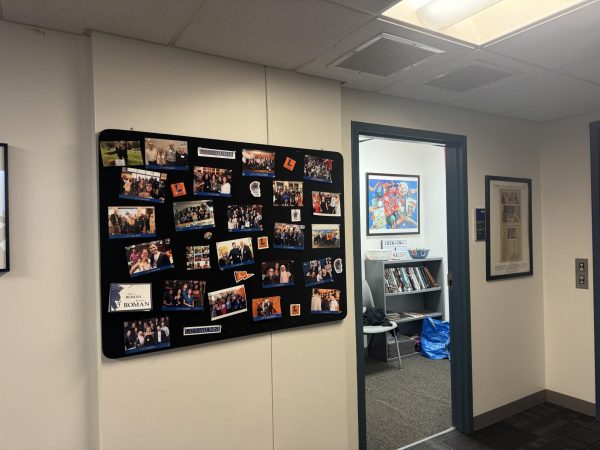Will TikTok Be Banned?

Universities across the country are cracking down on the popular social media app TikTok. And no, it’s not because students are scrolling through their “For You” pages in class or taking up hallway space to perform viral dances. TikTok is owned by the Chinese company ByteDance, and schools and lawmakers alike see the social media app as a threat to national security.
Regardless of the platform, many people get concerned over what data social media collects on its users. “TikTok is not the only platform that collects information; they all do,” Upper School librarian and Digital Citizenship teacher Gretchen Metzler said. “I do think it’s a bit unfair to single out TikTok when it is something that happens across platforms.”
Digital Citizenship is a part of the ninth grade Affective Ed curriculum. In the class, students learn ways to safely and responsibly navigate the digital world. “I would say around two-thirds of students are not concerned [about their data being collected],” Ms. Metzler said. “They have reported back to me in class that they find the benefits of data collection to be greater than the negatives.”
Latin isn’t the only school that tries to protect its students online. Worried about the threats to privacy, an increasing number of universities have restricted access to the app on their WiFi networks. Lawmakers on Capitol Hill have considered banning the app altogether to stop American data from being fed to the Chinese Communist Party, which TikTok denies has happened.

“The difference and the reason that universities and states have been banning TikTok on school WiFis and state-issued devices is because of the fact that TikTok is owned by a company that is not located in the United States,” Ms. Metzler said, “I think that if we are concerned about the data collection in TikTok, we should be concerned about data collection, period.”
However, not many students are concerned over their data being collected online. Sophomore Marco Speroni said, “Obviously, I’d rather [TikTok] not collect my data, but I don’t see it as a privacy breach because that’s just the day and age we live in right now. In the technology era that we’re in, the only way that you can get ahead is to collect as much data as possible.”
When companies collect data, they might use it to create a more personalized user experience where users are shown content based on the data collected about them. But that’s not the only thing the data can be used for.
“[Lawmakers] have a legitimate concern over what is happening with this data, and I appreciate the fact that they are raising alarms on the fact that a lot of data is being collected and taken, and we don’t know what’s going on with it,” Ms. Metzler said.
As for the legal implications of these data breaches, some students wonder about the future of TikTok. Freshman Ava Nelson said, “I don’t feel like [the government would ban TikTok], but it definitely could.”
This is not the first time the government has brought up banning the popular social media app. Similar concerns surrounding what the Chinese company was doing with our data were expressed three years ago by the Trump administration. The app is yet to be banned, but would we be better off if it was?
“As much as I love TikTok, I cannot lie: I waste so much time on that app,” Marco said. “It brings me enjoyment, but in the grand scheme of things, I would be better off—and a lot of people would be better off—without TikTok.”
“These apps are designed to train our brains to want more,” Ms. Metzler said. “It’s an addiction.” Social media algorithms, aided by robust data collection, are known for tempting users into spending copious amounts of time on the apps. Research shows that increased social media usage has negative effects on mental health. So whether or not TikTok is actually banned by lawmakers or schools, maybe less time on social media would be a benefit.
As for Latin, there is no apparent sign of an upcoming TikTok ban on LatinAuth. However, there has been recent controversy over Latin’s banning access to a chess app on the school WiFi. The school could always add sites and apps to the banned list. “Anything’s possible,” Ms. Metzler said. “In my perspective, I’m curious why games like chess wouldn’t be allowed but things like TikTok would be.”
While limiting students’ access to popular apps is one way to protect people online, some advocate for the government to pass a more permanent solution. Ms. Metzler said, “Our government needs to do more to rein in all companies and what they are collecting.”

Caroline McHugh (‘25) is excited to serve as an Editor-in-Chief this year! She loves writing on issues important to the Latin community—whether that...























































